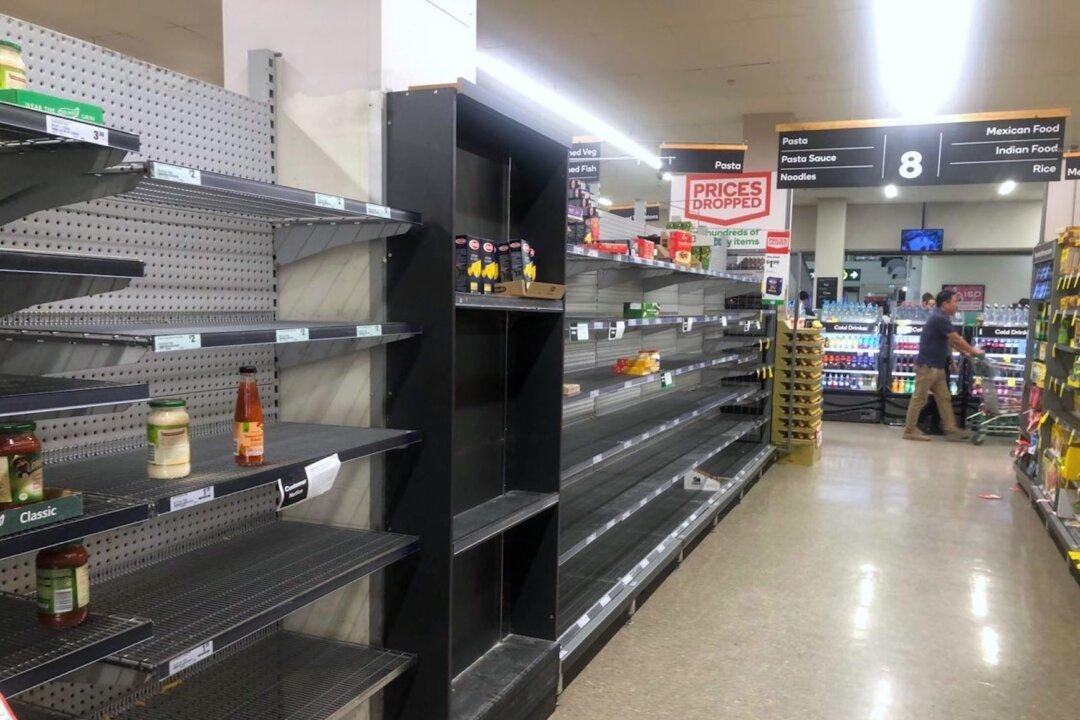Prime Minister Scott Morrison issued what he called a blunt message to Australians amid mass panic buying due to coronavirus concerns across the country, which has seen supermarkets stripped of toilet paper, pasta, rice, and frozen food, as well as tinned and other dried goods.
“On bulk purchasing of supplies: Stop hoarding. I can’t be more blunt about it. Stop it,” he said.





